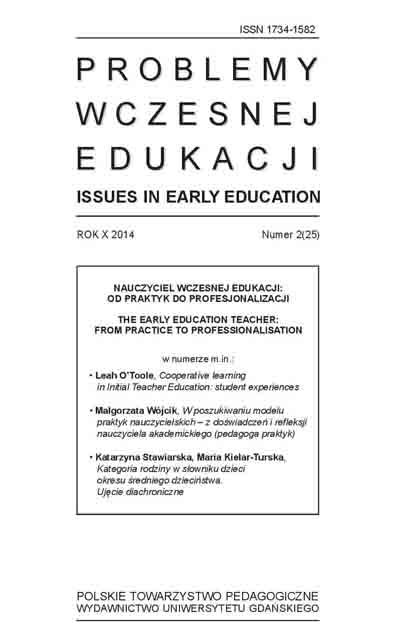Kategoria rodziny w słowniku dzieci okresu średniego dzieciństwa. Ujęcie diachroniczne
Family in the mental lexicon of preschool children. Diachronic view
Author(s): Katarzyna Stawiarska, Maria Kielar-TurskaSubject(s): Social Sciences
Published by: Polskie Towarzystwo Pedagogiczne
Keywords: language; middle childhood; representation; diachronic vie
Summary/Abstract: Vocabulary especially changes under the influence of cultural alternations. For example, the changing structure and function of the family in the contemporary world, causes modification of the family lexical representation. The goal of this study was to show changes in the mental lexicon of Polish preschool children in the space of 24 years. The domain of the mental lexicon chosen to be examined, is the family. We compared our results with the results collected by Zgółkowa and Bułczyńska in 1987. The investigation was conducted in a sample of 100 preschool children (age 3–7). We designed the experiment based on self-designed tasks, provoking children to talk about their families. It was expected that present-day preschoolers would talk about their families in the same way as the children, who were living in the late 1980s. This hypothesis had been confirmed. Present-day children use the same words as their peers who were living in the 1980s, when they talk about relatives. However, both groups of children differ according to word frequency. Nowadays, comparing with 1987, some names of family relations are used more often, while some have a lower frequency
Journal: Problemy Wczesnej Edukacji
- Issue Year: X/2014
- Issue No: 2 (25)
- Page Range: 45-59
- Page Count: 14
- Language: Polish

